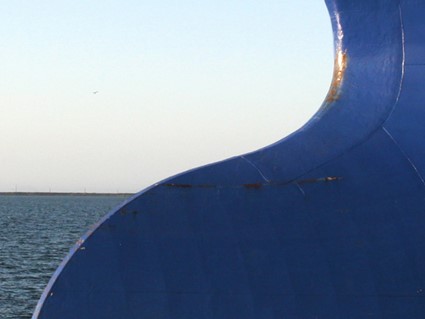Members may be aware that the Asian Gypsy Moth, which is to be found predominantly in eastern Russia, northern China and some parts of northern Japan, is a serious pest of coniferous and deciduous trees. Port areas in infested countries are sometimes subject to high population levels and the females often lay large egg masses on ships which can survive long sea passages, even in bad weather. The Asian Gypsy Moth is not found in North America and both the U.S.
News Alerts
We issue News and other Alerts to keep members posted about developments at the Club and other industry news. Please see our latest Alerts below.
Those who wish to receive an Email Alert as soon as a new report is posted can register for this service by subscribing here
28 February 2011
16 February 2011
Members are advised that new EU Sanctions against Côte d’Ivoire entered into force on 15 January 2011. The sanctions, which are against various named entities/persons in or from Côte d’Ivoire, are embodied in Council Regulation (EU) No. 25/2011 (which amends Regulation (EC) No. 560/2005) (for the full new Regulation click here).
23 November 2010
Industry reports on the recent total loss of a bulk carrier off Taiwan have highlighted that the ship was laden with nickel ore from Indonesia. The sinking has resulted in a significant loss of life but the surviving seafarers are reported to have described how the ship lost stability and capsized before sinking.
1 July 2010
The industry developed Best Management Practice (BMP) guidelines for reducing the risk of capture by Somalian pirates has recently been updated and the new guidelines (Edition 3) as attached. These guidelines are clearer than the previous version in a number of respects, but the main difference includes acknowledgement of their applicability to the Indian Ocean. They also offer some guidance to crew in circumstances where pirates have achieved strategic control of a ship.
18 May 2010
The Correspondent in Durban, P&I Associates (Pty) Ltd, has advised The London P&I Club of continuing strike action at all commercial ports in South Africa. The strike involves a dispute between Transnet, the operator of all South African ports (the government being the majority shareholder), and Unions over wage increases. The largest impact is at the Port of Durban which is currently at a virtual standstill.
30 April 2010
Following the recent explosion on the "Deepwater Horizon" oil rig in the Gulf of Mexico, the US Coast Guard advised that at present they have no plans to restrict traffic using the main channel for commercial shipping to the Mississippi River, the Southwest Pass.
13 January 2010
As highlighted in the previous London P&I Club News Alert, from 1 January 2010 the European Union Ultra-Low Sulphur Fuel Directive requires many ships to burn only ultra-low sulphur fuels while berthed in an EU port. However, the available ultra-low sulphur fuels are distillates and many ships have boilers which have not yet been converted to burn distillate fuels. Further, the use of distillate fuels in an unconverted boiler presents a serious safety risk.
31 December 2009
From 1st January 2010, Council Directive 2005/33/EC requires European Union (EU) member countries to ensure that ships within an EU port consume only fuel oil with a sulphur content by mass of 0.1% or less (ultra-low sulphur fuel). The requirements apply to ships berthed or at anchor and only very few exceptions, such as for ships scheduled to be within port for less than two hours, are permitted.
11 September 2009
The London P&I Club has received news of two very recent incidents in which bulk carriers have faced severe stability problems within hours of departure from a port in India at which iron ore fines had been loaded.In one case, the ship is reported to have capsized and sunk. In both cases, the preliminary reports attribute the loss of stability to liquefaction of the iron ore fines cargo.
4 September 2009
As the monsoon season comes to an end, an increase in the level of piracy attacks in the Gulf of Aden and the Indian Ocean is anticipated, particularly as the number of vessels understood to be remain captured is well below the historical high of eighteen, which suggests that pirates operating in those waters have the resources to seize more.

